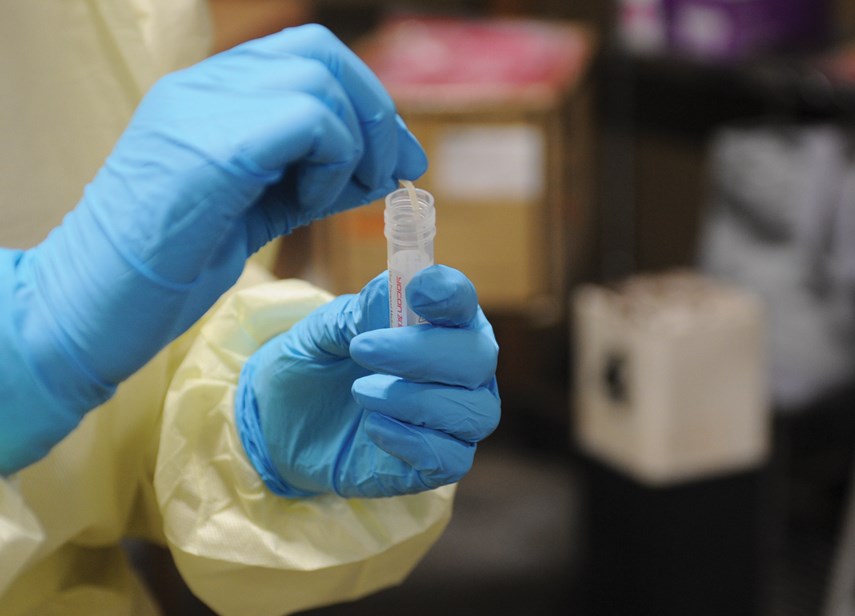In the last month, the vaccine rollout for seniors has been progressing effectively, which is cause for excitement and celebration, at least from my point of view.
I know I will be up for a vaccine next month if all goes well and this signals a light at the end of the tunnel.
One noteworthy message on information sites, bulletins and posters is a warning about scammers. “Scam Alert: You will not be asked for your SIN, driver’s license number, banking, or credit card details. If someone calls you claiming to be from the health authority and asks for these details, hang up.”
During COVID-19 scammers and people committing fraudulent acts have been busy – do not let them get to you.
This month is fraud awareness month, and the government of Canada has been putting out messages about scams and fraud. A good source of information is the Little Black Book of Scams by the Competition Bureau of Canada.
It is possible though that even the wariest of us can be caught out. A senior recently sent me a story about nearly being scammed by a person who phoned and said he was a lawyer who needed her to get to her bank to arrange funds for her daughter who he said had been arrested and needed bail.
A very hysterical women came on the line and seemed to confirm the story.
Persuaded, she went to her bank but while in a long line up for the teller she had time to think and become suspicious. She made some phone calls and eventually reached her daughter at home and in good spirits and then realized how close she had come to being scammed.
As the government message states: “Listen to your voice of reason before you act,” which I am glad to say this senior did.
Unfortunately, COVID-19 scams have proliferated. According to Canadian Anti-Fraud Centre, between March 6, 2020 and February 28, 2021, Canadian reports of COVID-19 fraud sit at 13,553, Canadian victims of fraud are 11,789, and $7.2 million has been lost to COVID-19 fraud.
It is hard to believe that people would take advantage of us while the pandemic rages on, and as we know the pandemic has caused real issues for seniors including loneliness, isolation, depression, and other health and wellness concerns.
But these fraudsters are sneaky, immoral and have no regard for peoples’ problems. In fact they thrive on exploiting people.
Some frauds and scams you may want to be aware of include the following. Phone, texts, and email messages supposedly from a financial institution, CRA, Public Health Agency or Service Canada demanding money, Bitcoin or gift cards or asking for personal information (these agencies will not call, text, or email you nor ask for personal information like bank numbers, credit card numbers – do not give personnel information to anyone that you do not already know).
A popular one with scammers is phishing or email texts which look legitimate. Do not open these unless you are absolutely sure about the sender.
Protect yourself by creating strong secure passwords and make sure you have anti-virus software installed on your computer and keep your operating system up-to-date.
Scammers such as private companies might offer unauthorized health products that they claim treat or prevent COVID-19 or provide rapid COVID-19 tests.
You should be aware that only hospitals, medical practitioners, or official testing centers can perform tests, and there are currently no products that can prevent COVID-19 other than the approved vaccines which for many of us seniors are just around the corner.
Scammers are also coming to your door claiming to be from Public Health and offering COVID-19 tests or other products and some are claiming to be from a charity. Do not answer the door to someone who is trying to get you to donate, sell you anything or pretends to be from the public health system.
Before you donate you can check that the charity is legitimate by phoning them directly or checking them out on-line. But it is safer not to donate at the door.
Unfortunately, I heard recently about a senior getting taken advantage of by a fraudster by having a new expensive heating system and ducts installed which he did not need and cost him quite a bit of money.
I must admit that six years ago we nearly fell for that scam ourselves, but while we were being given the hype which also included a supposed poor diagnostic on our system, I checked the company out and found out they were implicated in several scams. In this case it was buyer beware.
There are a number of other examples, but it is important for you to arm yourself by checking out sites to avoid getting scammed.
A recent publication called Senior Safety, 2020, published by the North Shore News, says “It is your responsibility to be alert, to be familiar with common frauds and scams, and to be well informed on tips that may prevent you from becoming a victim of fraud.”
To report a fraud or scam contact the Canadian Anti-Fraud Centre at 1-888-495-8501, or if you have lost money due to a fraud or scam, call North Vancouver RCMP at 604-985-1311.
We all want to believe in people and we all may experience panic when confronted with a fraud or scam which is supposed to help a family member in distress, but again like the senior who contacted me did listened to her voice of reason before she acted.
Margaret Coates is the co-ordinator of Lionsview Seniors’ Planning Society. She has lived on the North Shore for 50 years and has worked for and with seniors for 25 of those years. Ideas for future columns are welcome Email: [email protected]



